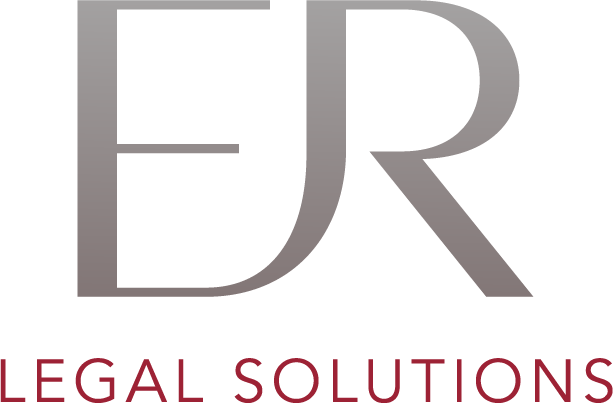Family-Based Immigration:
Family-based immigration involves various legal matters related to individuals seeking to immigrate to the U.S. through family connections.
Adjustment of status
Assisting individuals in applying for a green card while in the U.S.
Petitions for immediate relatives
Spouses of U.S. citizens
Unmarried children under 21 of U.S. citizens
Parents of U.S. citizens (if the citizen is 21 or older)
Family Preference Categories
Unmarried adult children of U.S. citizens
Spouses and children of lawful permanent residents (green card holders)
Married children of U.S. citizens
Siblings of U.S. citizens (if the citizen is 21 or older)
Consular Processing
Helping clients apply for immigrant visas through U.S. embassies or consulates abroad
Waivers of inadmissibility
Navigating issues where applicants may be inadmissible due to criminal history, immigration violations, or other reasons
K Visas
K-1 visas for fiancés(e)s of U.S. citizens
K-3 visas for spouses of U.S. citizens awaiting immigrant visa approval
Citizenship Applications
Assisting lawful permanent residents in applying for U.S. citizenship based on family relationships
Appeals and Motions
Handling appeals for denied petitions or applications, and filing motions to reopen cases
Deportation Defense
Representing family members facing removal proceedings, particularly if they have U.S. citizen or lawful permanent resident relatives
Asylum and Refugee Status:
Asylum and refugee applications involve various legal matters aimed at protecting individuals fleeing persecution or violence in their home countries.
Application Preparation and Filing
Assisting clients in gathering evidence and documentation to support their claims, including personal statements, witness affidavits, and country condition reports. Preparing and submitting applications for asylum seekers.
Interviews
Preparing clients for asylum interviews with U.S. Citizenship and Immigration Services (USCIS) or interviews for refugee status with the State Department or other agencies. Representing clients in immigration court proceedings, including asylum hearings, to present their case before an immigration judge.
Appeals & Motions
Handling appeals for denied asylum claims to the Board of Immigration Appeals (BIA) or filing motions to reopen cases based on new evidence or changed circumstances.
Protection Against Removal
Advocating for clients who may face removal proceedings, particularly if their asylum claims have been denied.
Immigration Court Representation:
Removal proceedings, commonly known as deportation proceedings, are legal processes in which the U.S. government seeks to remove a non-citizen from the country.
Defense against deportation: removal proceedings, commonly known as deportation proceedings, are legal processes in which the U.S. government seeks to remove a non-citizen from the country.
Bond Hearings: many individuals may be detained during the proceedings, and there are processes for seeking bond hearings or parole.
Appeals and Post-Decision Options: depending on the outcome, respondents may have options for further appeal or seek to reopen their case based on new evidence. If the respondent disagrees with the judge's decision, they can appeal to the Board of Immigration Appeals (BIA).
Investment Immigration:
EB-5 Investor Visa: For individuals investing in U.S. businesses.
Humanitarian Programs:
Temporary Protected Status (TPS) - a humanitarian program in the United States that allows individuals from certain countries experiencing ongoing armed conflict, environmental disasters, or other extraordinary conditions to live and work in the U.S. temporarily.
Special Immigrant Juvenile Status (SIJS) - a legal classification in the United States that provides a pathway to lawful permanent residency (green card) for certain foreign children who have been abused, abandoned, or neglected.
U Visas - For victims of crime.
T Visas - For victims of human trafficking.
DACA (Deferred Action for Childhood Arrivals) - A program for certain undocumented individuals who were brought to the U.S. as children, allowing them to work and live without fear of deportation.
The Violence Against Women Act (VAWA) - provides protections for victims of domestic violence, including those who are undocumented. Under VAWA, certain individuals can self-petition for lawful permanent residency (a green card) without relying on their abuser.
Student and Exchange Visitor Visa:
F-1 Student Visas
J-1 Exchange Visitor Visas
Consular Processing:
Applying for a visa or green card from outside the U.S. through a U.S. consulate.
Naturalization and citizenship applications:
Naturalization is the process by which a lawful permanent resident (green card holder) becomes a U.S. citizen.
Naturalization applications
Interview preparation and representation
Consultation and Legal Advice:
Personalized assessments of immigration options
Strategies tailored to individual circumstances
Employment-based immigration:
Employment-based immigration involves various processes and visa categories that allow foreign nationals to work in the U.S.
Visa Categories
H-1B Visa: For specialty occupations requiring a bachelor's degree or higher.
L-1 Visa: For intra-company transferees, including L-1A for managers/executives and L-1B for employees with specialized knowledge.
O-1 Visa: For individuals with extraordinary ability in fields like science, arts, education, business, or athletics.
TN Visa: For Canadian and Mexican citizens under the USMCA (formerly NAFTA) for specific professional roles.
E-2 Visa: For investors or employees of investment companies from treaty countries.
P Visa: For athletes, entertainers, and artists.
Labor Certification (PERM)
Employers must often obtain a Labor Certification from the Department of Labor (DOL) to prove that there are no qualified U.S. workers available for the position.
Adjustment of Status or Consular Processing
If the worker is already in the U.S. on a valid visa, they may apply for Adjustment of Status (Form I-485) to become a permanent resident.
Alternatively, workers outside the U.S. may go through consular processing at a U.S. embassy or consulate.
Permanent Employment-Based Green Cards
EB-1: For individuals with extraordinary abilities, outstanding professors/researchers, and multinational executives.
EB-2: For professionals with advanced degrees or exceptional ability.
EB-3: For skilled workers, professionals, and other workers.
EB-4: For special immigrants, including certain religious workers and employees of U.S. government abroad.
EB-5: For investors who create jobs in the U.S. through substantial investments.
Family Members
Many employment-based visas allow for the visa holder’s spouse and children to accompany them or apply for derivative status.
Appeals and Challenges
Assistance with appeals if a petition or application is denied and guidance on options for re-filing or addressing issues.
